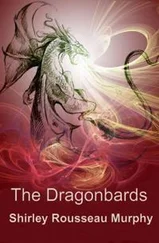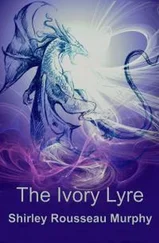Why is the wraith linked to Anchorstar? She repeated. Do you not feel it, Ramad? I see it as if in some future time; I see the wraith feeding on the pain of young Seers still as death. All in the future, Ramad. And Anchorstar is there.
Ram turned the rock hares with a shaking hand. Fat dripped down to make the flames leap anew, smoke twisting against sunlight. “Why is he there, Torc? As victim of the wraith? Or—as accomplice?”
As victim, Ramad. Sleeping, drugged, as close to death as those young Seers.
He breathed easier. He would not have liked betrayal by Anchorstar, would not have liked betrayal by his own senses in trusting Anchorstar so implicitly. He took from his pocket the three starfires that Anchorstar had given him and held them near the flame, watched them catch dark green streaks within, then turn to amber once more. He looked up at Torc, squinting against the sun. “Is your vision a true one?”
As true as any vision of future time can be, Ramad of wolves.
“If it is so, then Anchorstar will need all the power he can muster.” He touched the starfires. “I do not see what the future holds for Anchorstar, but I know he suffers deep within. I have never plumbed those depths, nor do I understand Anchorstar well. I hope that by giving me the starfires he has not weakened his own power. If I could help him, there in that future time, I would do so. I would give back the starfires if it would help.”
The starfires are a treasured gift, Ramad.
“Though they have little power, I think, other than to move through Time. Strange stones, Torc. I cannot guide my fall through Time by them, yet I feel their power in the very warping that Time makes. Sometimes I feel, like Anchorstar, that I should cast them away.”
I would not, Ramad. You could do great harm by that. All is linked. All. The starfires, Anchorstar, the wraith, Skeelie—more than you know. Telien is linked to all of it.
“Linked—how? You have taken a prophetic turn, Torc.”
I do not know how. I only see it. Lying here half in fog, mesmerized by your Seer’s skills, Ramad—visions came. Sweeping senses like the gray fog swirling up, and then gone. No reason to it. Only the sense of it, a sense of purposeful linking, of creatures touching across Time, meeting across Time in some meaning and purpose I do not comprehend. A sense of your lady, Telien, linked to all of it.
Telien. He saw her face in a memory filled with pain, her green eyes clear as the sea. Was it memory or vision? His emotions and his longing for Telien were so raw he could never be sure. Perhaps memory and vision muddled together; but now he sensed her in a time long past. He was very sure of that suddenly. Had she returned to their own time? He saw danger around her, saw cruelty touch her, a vision immersed in darkness, filled with agony. He reached out his hand involuntarily, and burned his fingers in the fire, then sat staring morosely at the flame. Torc watched him in silence.
When he looked up at last, he was tense with purpose. “I must be with her, Torc. Somehow, I must. She is in need. When I try to reach out, nothing comes. The starfires do not help me, never help me. But I know she is in need.”
And there was another vision that touched him, puzzling him, seemed to be linked to Telien, though he could not understand how. A young Seer reached out to him in dreams, a young redheaded man with clear blue eyes. And something, perhaps the turn of his cheek, so like Telien that Ram could not forget his face; a young Seer reaching out of Time to speak to him not in words but with a need that Ram knew he must at last acknowledge. There was surely a linking between them, they were creatures linked across Time somehow. But what was that linking? And how was Telien a part of this? The young Seer seemed to hold in his mind repeated visions of Ram and the wolves fighting beside him; as if he needed Ram, would purposely draw him into another time and yet another battle if he could. As he had been drawn into Macmen’s battle. And did that other Seer hold a runestone, just as Macmen had? Ram dared not dream that he did. Yet he sensed a power that the young, untrained Seer seemed to wield with little assurance. Ram knew he must reach out to him, that it was not only Telien he must seek—though it was Telien his seeking spirit longed for. He looked across at Torc. Who was this young Seer who beckoned to him now? Torc watched him in silence, seeing his thoughts with sympathy. And, feeling her kindness, his longing for Fawdref and Rhymannie and their pack came sudden and sharp. “They have not been with me, Torc. Fawdref and Rhymannie were swept away even as I was, into Time. The rest of the pack was not with us, might still be in our own time, I do not know.”
They are not in our time, Ramad. The pack did not return to the mountain after the battle at the Castle of Hape. I was not with the pack when they attacked the castle, I was in the whelping dens, awaiting my cubs. She paused, then went on. The pack did not return there. But I know that my mate was killed, battling at the Castle of Hape. He spoke clearly in my mind then. Spoke of private things. They—the band will be with you, Ramad, if they are needed. Call them. Speak to them with the bell. Fawdref is growing old. He needs you, now, as much as you need him.
*
Hermeth saw the enemy driven back, saw his men resting from battle where they had fallen, where tired horses had stopped to blow. Soldiers began to sponge away blood with water from their waterskins, dressing the wounds of their animals before they tended themselves and their brothers. He ached with fatigue, with remorse at the waste of war, stared out across the near-dark remains of what had so recently been farm buildings, milking pens, now only smoking rubble peopled with the corpses of horses and men. Waste, desolation, just as his father before him had known at the hands of the Herebian raiders—at the hands of dark Seers Macmen thought he had destroyed in his last great battle, the year that Hermeth himself was born. Hermeth sighed and considered the desolation before him with some sense of victory, for they had driven the bastards back, had sent a fresh battalion to pursue them on good mounts, to slaughter every Herebian son of . . . He lowered his head suddenly and clenched his eyes closed as another vision swept him. The battlefield disappeared; he saw a wolf again, only one wolf this time. A golden bitch wolf with golden eyes reflecting the light of a campfire. Across from her sat the dark-eyed Seer he saw each time a vision came. He was leaning to turn roasting rock hares, his red hair so bright in the morning sun it seemed to dim the firelight. The wolf wore some sort of poultice on her shoulder. The young Seer wore two swords now, one with a carved silver hilt. The vision faded slowly, firelight and sunlight filtering together until it dazzled his eyes; and the figures were gone.
Why did such visions haunt him? He had never in his life had visions; his Seer’s skills had never been strong. These visions were so real he could smell the fire and the roasting rock hares, and feel the cold breeze. Feel sharply his need to speak to that Seer. Surely there was a meaning, surely it was the runestone he carried that made such power in him. But why did it do so now, when it never had before? Did the runestone itself have some mysterious link to that young, dark-eyed Seer?
Hermeth knew his skills had come stronger since his visions began. The conjuring he had laid upon the sheep pastures, to deceive the rabble raiders, had been more than satisfying; that memory still left him with a shock of surprise that he had been capable of such. And his power seemed linked to the other Seer; he felt that they were meant somehow to stand together in battle, though he could not divine the reason. Had that, too, to do with the stone? He felt increasingly that he needed that other Seer in a battle yet to come. He stared into the thickening dark, puzzling. A fitful wind touched his cheek, blowing down from the high deserts that rose above the rim, and he seemed to touch a sudden and desolate sense of space, of eternity, that dizzied him, made him draw back, want human company. He turned away toward the cookfires where his men were tending their wounds, knelt beside a young soldier and took the bandage from his hands, began to wrap the boy’s arm. When he looked up at last, the cast of firelight caught his men’s faces in a quiet brotherhood that stirred him deeply, the brotherhood of soldiers who knew they might die together, soldiers who fought together fiercely.
Читать дальше
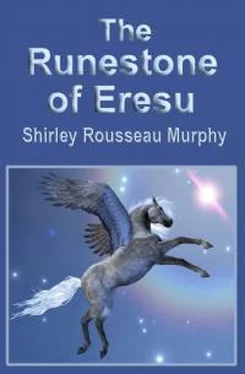
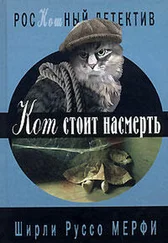
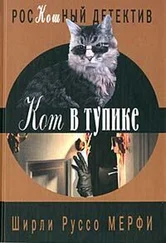
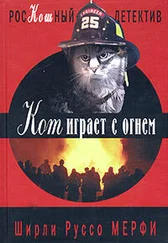
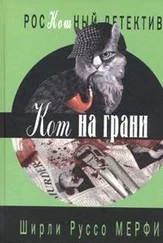

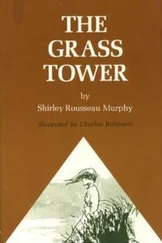
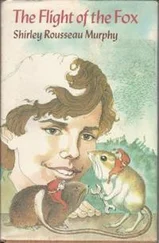
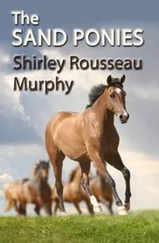
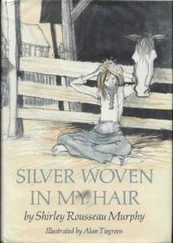
![Ширли Мерфи - The Shattered Stone [calibre]](/books/436059/shirli-merfi-the-shattered-stone-calibre-thumb.webp)
